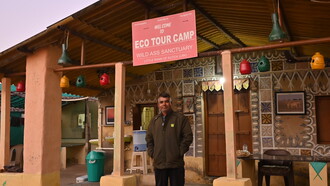We have all been children, and most readers have also been parents and perhaps also grandparents, so this fascinating behavioural analysis in the book of Matthias Doepke and Fabrizio Zilibotti1 will be of wide general interest. Its central thesis is that income inequality is the most important driver of parenting styles, so that “over time parents have become increasingly pushy in countries where inequality has increased, while parents remain more liberal in countries where income inequality has decreased” (p. 15). This argument might seem far-fetched at first sight, but the authors make a persuasive case for its validity within the more general thesis that economic conditions affect the choices parents make and how they interact with their children. The treatment is both cross-cultural and historical, with a final part on policy.
We are all familiar with the spectrum of parenting styles from authoritarian and authoritative at one end to permissive at the other. We can also all recognise that we were brought up in a different world, in my case with a pretty authoritarian style, which I have not emulated in my own children, where we were between authoritative and permissive. These styles are defined the first chapter where all parents mix altruism and paternalism in trying to help their children be happy and successful within the constraints imposed on their choices – principally money, knowledge and time. A general research finding is that an authoritative parenting style is associated with better school performance. The raising of educational stakes and the rise of individualism is correlated with the emergence of intensive or helicopter parenting where parents spend more time directing their children, as demonstrated in a number of charts.
Parenting styles are also correlated with different values across countries in terms of the relative importance of imagination, independence and hard work. Interestingly, 65% of Americans mentioned hard work as a key virtue, while in more permissive Nordic countries the percentage is much lower – 11 to 17%; the US attitude is also reflected in religious background and political affiliation. By contrast, independence and imagination are very important in Nordic countries - then there is more detailed treatment of these themes in the Netherlands, Sweden, Germany, Switzerland, the UK, China and Japan. Chinese parents spend 10 times as long every day drilling academic activities with their children, and the pressure of their public exam system is intense. In general terms, the growth of inequality is correlated with a rise in authoritative parenting especially where education is the key to upward mobility and a successful career.
The next chapter looks at inequality and parenting style, highlighting the ‘parenting gap’ between the better and less well-off, where higher income parents can afford extra help and buy more time. Single-parenthood, divorce and ethnicity also play a role. The historical section looks at the demise of authoritarian parenting, the transformation of gender roles, the trend from larger towards smaller families and the relationship between parenting and class, comparing aristocratic and middle-class values. The decline of authority and obedience is correlated with a rise in the importance of independence. The authors discuss the economic roots of gender roles and the impact of technology as well as rising participation by women in the labour force. Parents respond to the perceived needs of their children in the future, and, interestingly but not surprisingly, political representatives with girls tend to vote more liberally, especially on issues directly related to women. The decline in fertility is correlated with that of child labour and a corresponding increase in the number of children in education. Smaller families also mean that each child receives more attention. Historically, aristocrats were brought up to enjoy leisure rather than hard work, while this quality was essential for the middle and working classes, and was stressed by Protestant values.
The final part considers the organisation of the school system, including the historical decline of corporal punishment. Most school systems revolve around exams, some more intensively than others - for instance China and France. By contrast, Finland has a system of low pressure but still achieves very good scores on OECD assessments. Teachers in that country command high social status so that only the best qualified students become teachers. France has a very vertical teacher-led system with an emphasis on the ability to reproduce material and intense competition for entry into the prestigious Grandes Ecoles that produce its governing class.
The authors are careful not to write a parenting guide, and argue that all parenting styles involve trade-offs. However, increasing skill requirements in the economy are likely to continue to raise the stakes in education and therefore favour authoritative and intensive parenting styles. This also means that parents are much closer to their children than they used to be. In policy terms, measures to diminish inequality are also likely to enhance what the Bhutanese call gross national happiness. All in all, a highly informative read.















